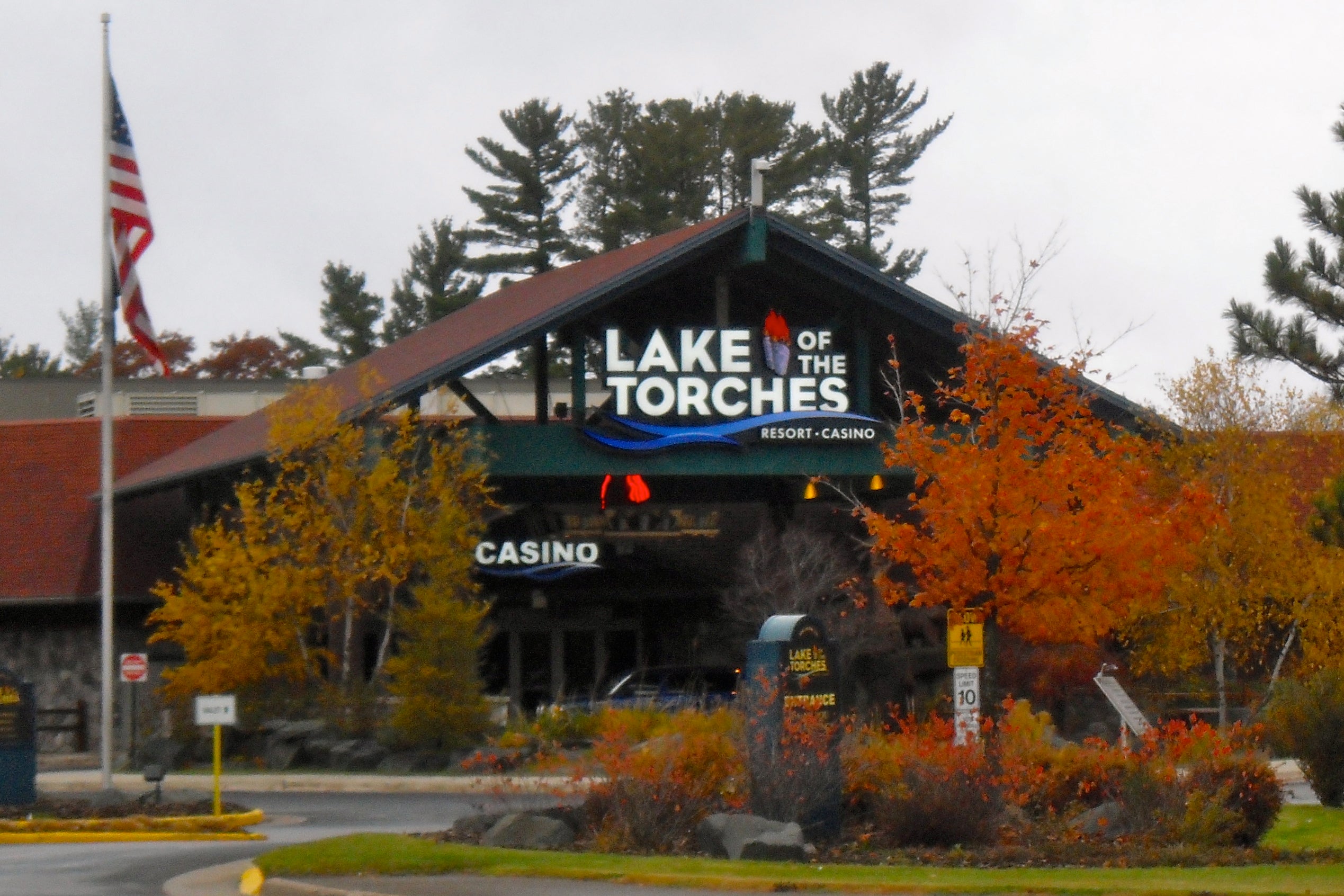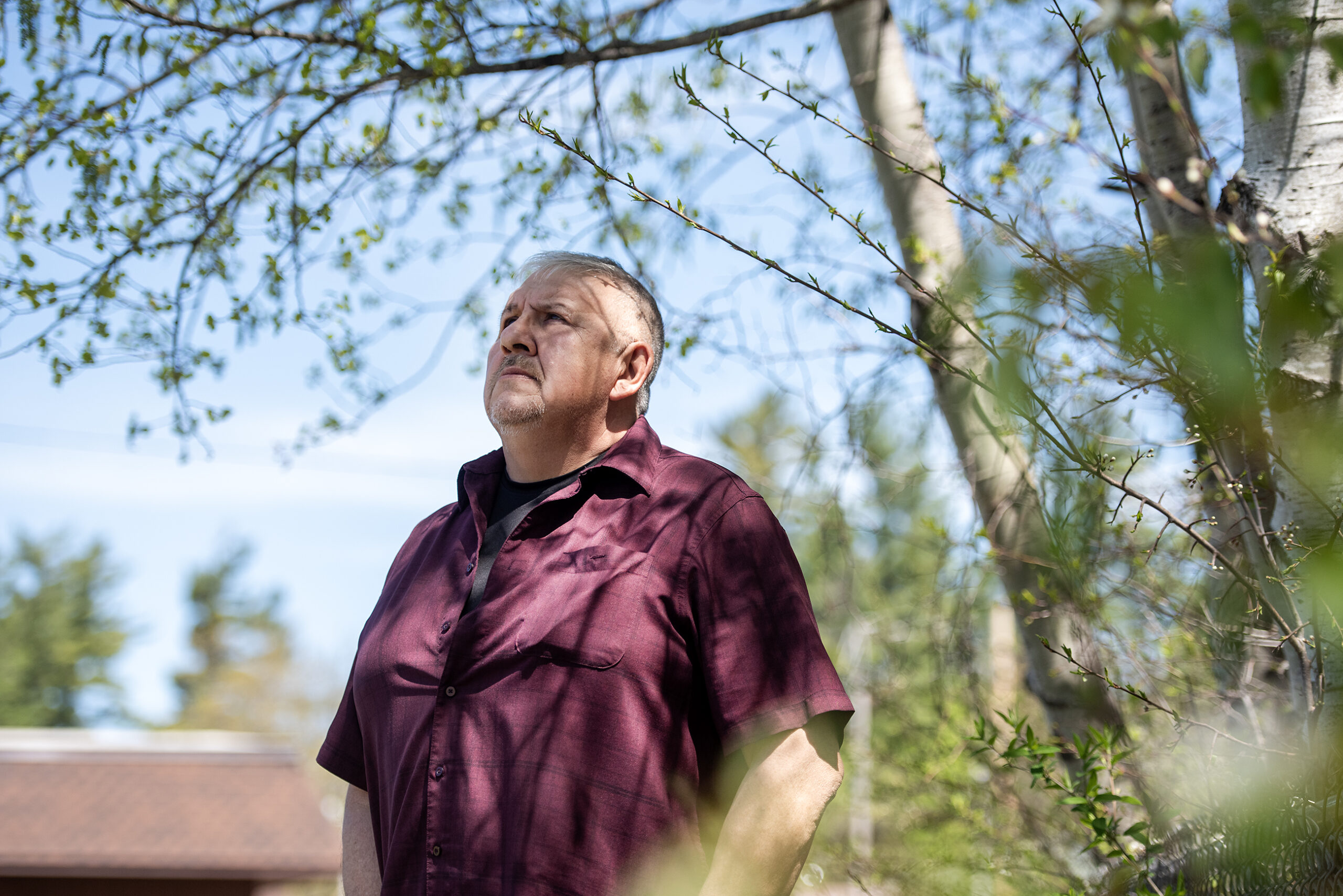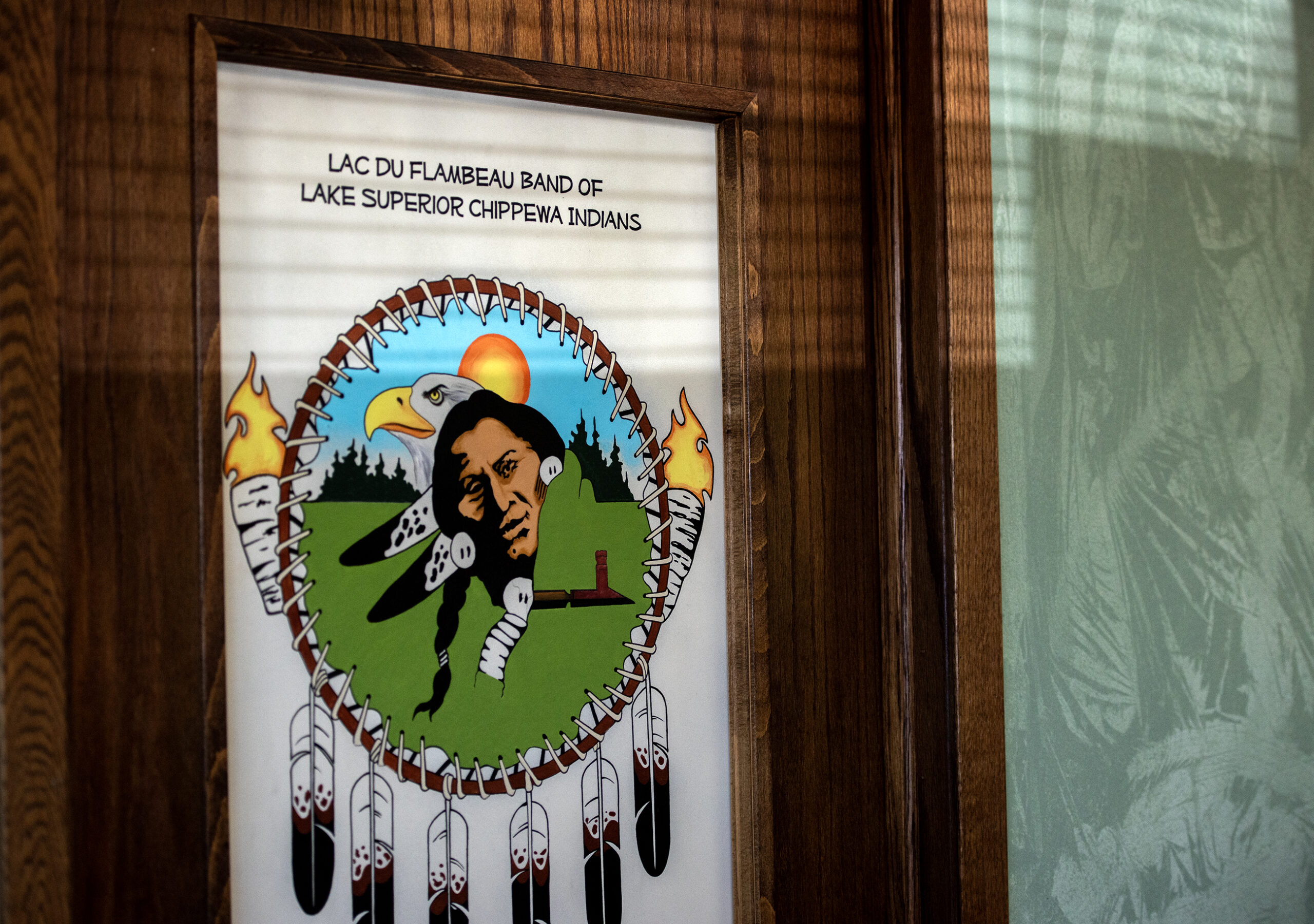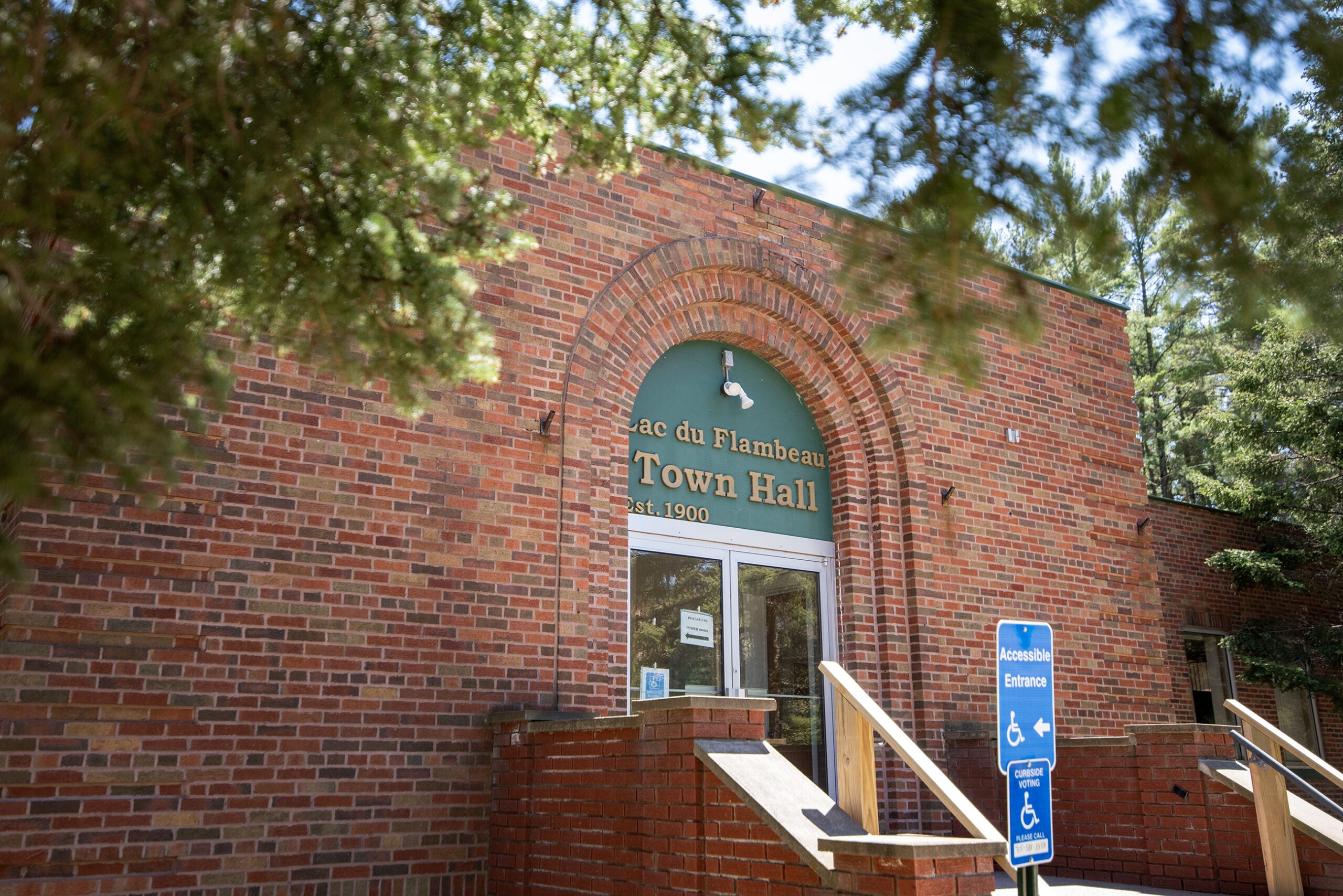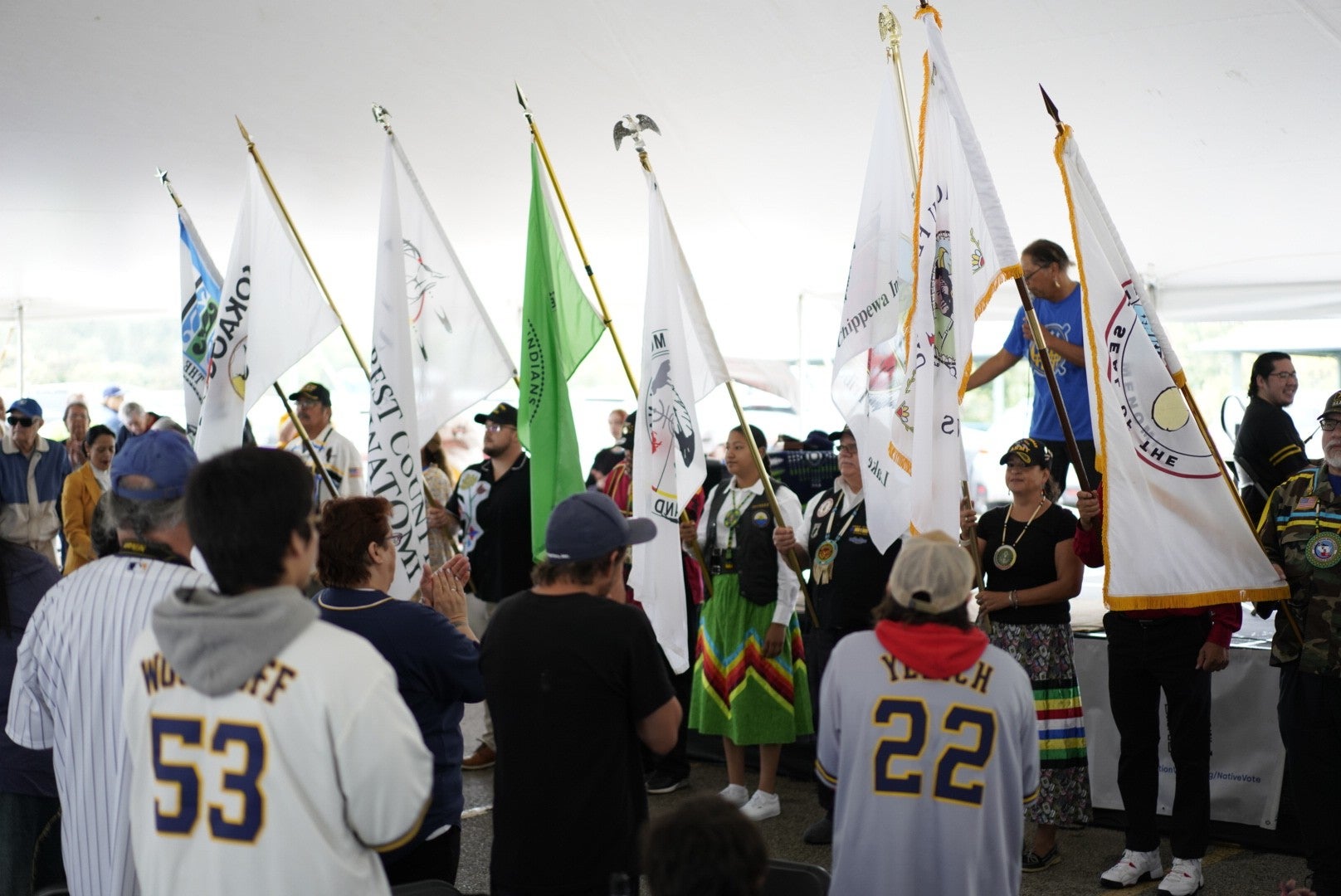It’s nothing new that Native American voter turnout is low, but some members of Wisconsin’s 11 Native American tribes are working to change that.
Adrian King is one of them.
He’s a member of the Lac du Flambeau Band of Lake Superior Chippewa and says he stayed away from politics until last winter. But Republican lawmakers’ support for new state laws that would have streamlined permitting for iron ore mining in northern Wisconsin changed that.
Stay informed on the latest news
Sign up for WPR’s email newsletter.
For King, environmental issues are one of his biggest concerns this election season.
“There are these responsibilities that some of us have,” he explained. King believes it is his duty to make sure the land is maintained; he cares deeply for the wild rice beds in and around Lac du Flambeau.
This election season, he’s been volunteering with Matt Dannenberg of PowWow the Vote, going door to door on the reservation asking residents to commit to voting in November.
PowWow the Vote is a non-profit, bipartisan group working with Wisconsin’s 11 recognized Native American Tribes to encourage voter registration. It’s a part of the Wisconsin League of Conservation Voters.
For both King and Dannenberg, it’s troubling that only an estimated 38% of tribal members vote in presidential elections. That’s compared to around 64% voter turnout for the nation overall.
Around 30,000 enrolled tribal members are eligible to vote in Wisconsin. While that doesn’t seem like a lot, Dannenberg says it’s important to get those voters to the polls because they could make the difference in a swing state.
Registering Native American voters and getting them the polls, however, is a tall order. It’s also a complex issue.
Brian Gauthier, Outreach Specialist, Department Head and Community Resources Development Educator for UW-Extension’s Lac du Flambeau Tribal Office, says that while many in the area don’t think their vote matters, there are other factors.
Racial relations and tensions do play some part, he says.
While there isn’t a lot of tension in the area, people who don’t live on the reservation do sometimes have the perception that tribal members aren’t participating members of society outside the reservation.
Tribal members recognize that, he says, and they don’t like it.
He told a story about a worksheet his daughter was given in a math class at the public school in Minocqua where students from the reservation attend high school.
“She did the problems, then they correlated with letters,” he said. “At the bottom of the page, the right answers spelled the words ‘strawberry squawcake.’”
Several of the Native American students found that offensive, and while the teacher who assigned the homework was suspended, many of the non-tribal parents in the district thought some tribal parents were being too sensitive.
Gauthier says it’s hard sometimes to get Native American voters to think they matter to people outside the sovereign nation, when their voices aren’t considered in things so small as a homework assignment.
“It’s stuff like that which causes ugly things from the past to rear their heads,” he explained.
He says many participate in tribal elections but don’t in other elections. While some in Lac du Flambeau don’t intend to vote in the presidential race, there are some who do care about it.
King says he wants whoever gets elected to take a moment to consider what their policies will do to the earth that provides food, shelter and water everybody needs to survive. He isn’t 100 percent sure who he’ll vote for.
“It’s hard to decide who is the better man, because they both want the job. It’s hard to see where their heart is,” he said. “It’s like their mind is their heart’s evil twin; they want money and power.”
Wisconsin Public Radio, © Copyright 2024, Board of Regents of the University of Wisconsin System and Wisconsin Educational Communications Board.

